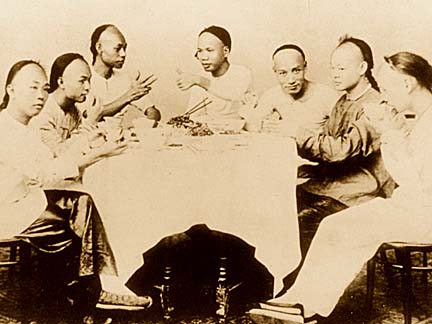


People growing up in Hawaii are comfortable with the notion that Asian immigration to the West began in the late 1800s, with waves of Chinese coolies arriving to work Hawaii's plantations and build America's railroads. ‘Invisible’ Asians
"Ancestors in the Americas"
in U.S. history
Airs 9 p.m. today and March 30, KHET/PBSStar-Bulletin
Filmmaker Loni Ding takes a global view of Asian and American history being one and the same in her two-part documentary, "Ancestors in the Americas," airing at 9 p.m. today and March 30 on KHET/PBS.
Searching out the history in archaeological sites, newspapers, folklore, songs and personal mementos, Ding learned that Chinese and Filipino settlements in America date to the 1600s, when as global sailors and merchants, they jumped ship in Mexico. As early as 1635, Mexican barbers complained that Chinese barbers were taking away their business.
Many Filipinos headed for Louisiana, where they became shrimpers, creating settlements such as Manila Town.
Interviewed for the piece were academics such as professors Dilip Basu of the University of California, Gary Okimoto of Columbia University and John K.W. Tchen of New York University, who point out that European explorers had an economic interest in their travels and found the Americas by accident when searching for Asia and its wealth of goods.
Ding demonstrates how the young American republic built its fortune on trade with China. For instance, Chinese tea merchant Houqua gave John Murray Forbes half a million dollars to invest in the railroads. In a retelling of the story of the Lewis and Clark expedition, we see it as part of Jefferson's mission to find a water route to the Pacific and Asia.
In spite of their contributions, Asians have remained invisible in the history of America, and Episode 2 documents primarily the Chinese battles against prejudice to earn their place in America.
Ding, who teaches in the Asian American and Ethnic Studies Department at Berkeley, has received several awards -- including Emmys, a Rockefeller Fellowship, Guggenheim Fellowship and Director's Fellowship from the American Film Institute -- for her works devoted to Asian Pacific Americans.
Click for online
calendars and events.